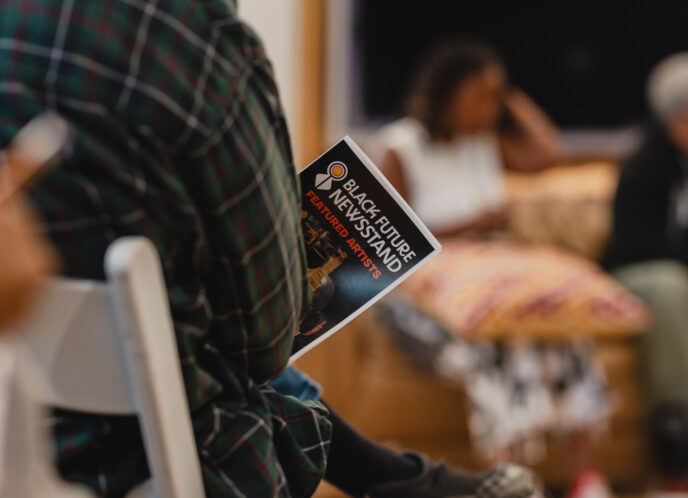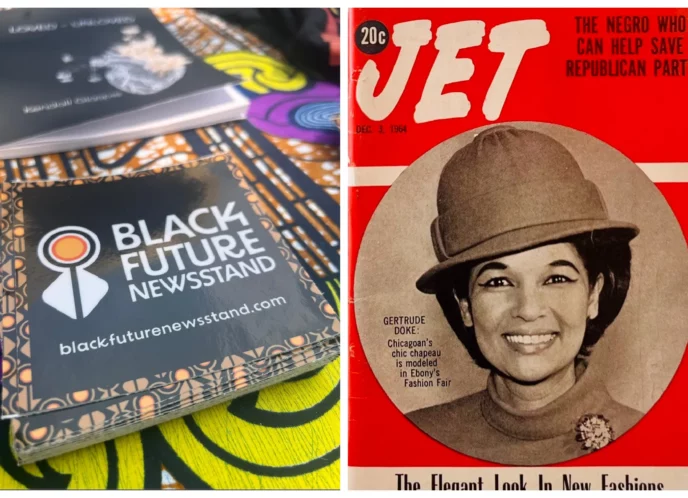At Center for Media Justice we use storytelling every day—in fact, it’s one of our most powerful tools—and this is especially true in our advocacy. In our work to create media and cultural conditions that strengthen movements for racial justice, economic equity, and human rights—stories and storytellers play a central role.
In the world of movement-building this is common. Community events often start with narrative based introductions as we acknowledge the shoulders we stand on—the people who’ve shaped us, named us, taught us where we’ve come from, and remind us where WE (as a people) are going. We share personal and community stories because we believe that social identity and cohesion are essential to building political solidarity—and we recognize stories are political tools that transmit culture and identity, identify issues and inspire vision and strategy for social change. We begin by listening—understanding the stories we hear as the starting point for political change.
 Brain research supports our approach—showing that humans think in narrative structures. Ideas shared in a ‘story form’ are absorbed more naturally into the human brain than those explained with logic and analysis. Science now shows that narratives activate parts of the brain beyond the “classical language” regions– suggesting vivid narratives have the power to create mental scenes that not only shape how we think about ourselves, but how we behave. Science aside–organizers and cultural workers have long known that stories create a sense of identity, build a peoples’ sense of community, and strengthen the emotional connections among people that create a sense of shared purpose.
Brain research supports our approach—showing that humans think in narrative structures. Ideas shared in a ‘story form’ are absorbed more naturally into the human brain than those explained with logic and analysis. Science now shows that narratives activate parts of the brain beyond the “classical language” regions– suggesting vivid narratives have the power to create mental scenes that not only shape how we think about ourselves, but how we behave. Science aside–organizers and cultural workers have long known that stories create a sense of identity, build a peoples’ sense of community, and strengthen the emotional connections among people that create a sense of shared purpose.
Last week my colleague Steven Renderos and I took to the Hill to talk to members of Congress about the high cost of phone calls from prisons and detention centers. Our visits were part of a collaborative effort, which includes a number of national Civil Rights organizations and public interest media policy groups. As we made our way from office to office, I was reminded of the power of storytelling as a way to transmit digestible information about complex issues into the halls of Congress. And how a “powerful story” has as much power to get policymakers to make critical change as the heavily footnoted report.
Powerful stories bring members of Congress into the lives of their constituents. They create a narrative structure that allows these leaders to hear how policy impacts real people in their everyday lives. The stories of the challenges and community-defined solutions can be valuable resource to help policymakers craft and change the rules and regulations that impact our lives. At CMJ, this is what we mean when we say we want a policymaking process that is people-centered and community-based.
Storytelling makes our advocacy smarter! Our MAG-Net members know what works and what doesn’t work in their communities. By carrying their stories to DC, we help policymakers understand the human impact of their policy decisions. Through our campaigns we demonstrate the importance of gathering information directly from local communities—prioritizing the voices of communities historically and systematically left out of the decision-making process.
Without an understanding of how our communities are affected, our leaders will continue to create uninformed policy. For marginalized communities, we know this means BAD POLICY. Through the Right to Call Home Campaign we will continue to share real stories from real people impacted by the predatory prices of prison and detention phone calls. With your help our stories will make it into the public register. Our voices will be heard at Congress and the FCC. Together we’ll demonstrate the impact of policies that sacrifice people for profits—and collectively we’ll tell our story of the right to communicate in an incarceration nation.


